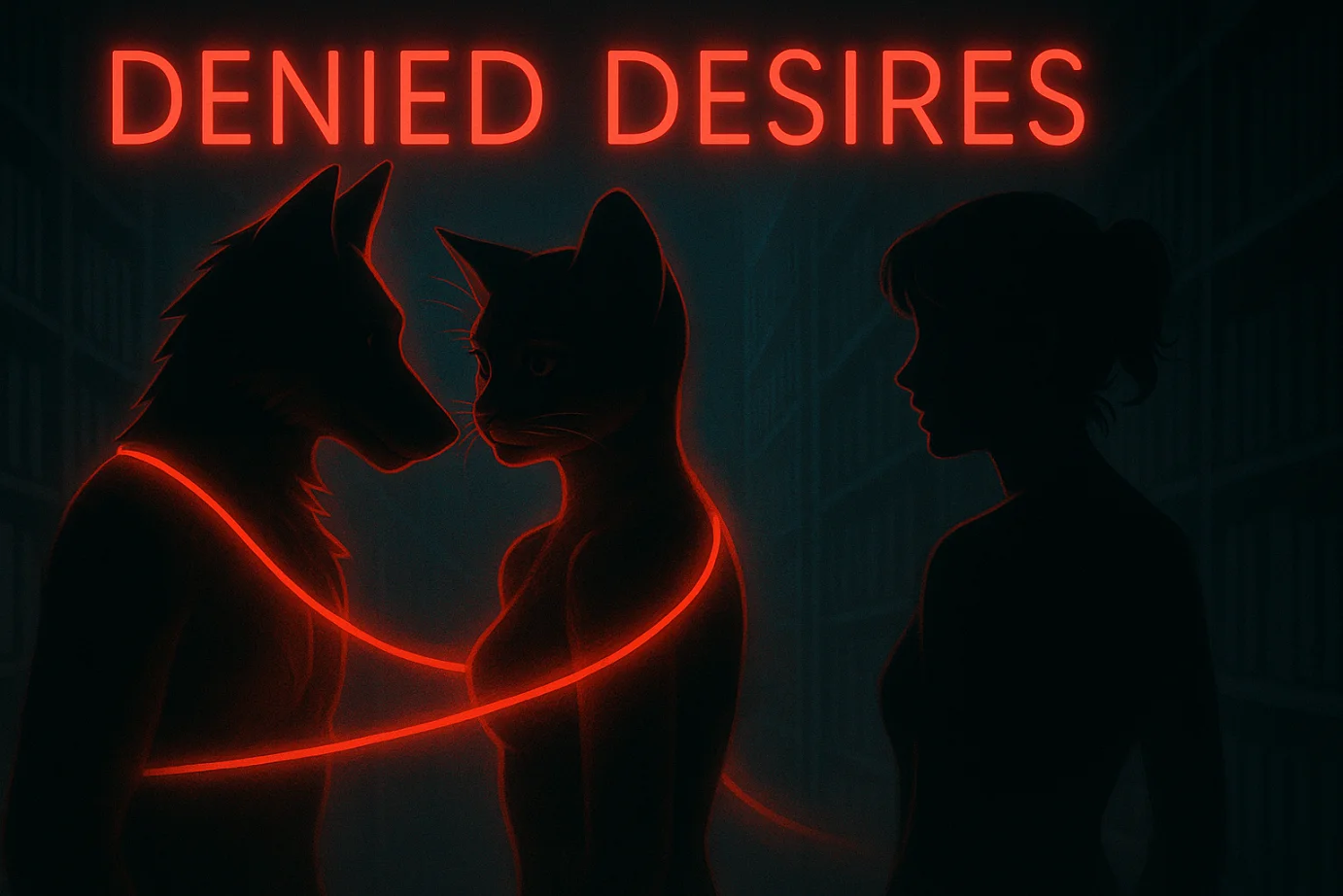In the hushed corridors of anthro civilization, where fur pigments and scale patterns map lineage and status like braille on the skin, certain cravings pulse just beneath the veneer of polite society—yearnings so incendiary they are stitched into the very seams of shame. From the silken hush of morel-lit library alcoves to the neon glow of hidden alleys, forbidden desires ripple like an underground tide, drawing some toward intoxicating defiance and others deeper into the heavy cloak of self-denial.
Across millennia, anthro lawmakers have inscribed taboos on bone tablets and temple walls, invoking ancestral spirits and guardian deities to police the heart’s secret wants. These ancient edicts—prohibitions against cross-species liaisons, nocturnal revelries, and “excessive” expressions of pleasure—became codified in both law and custom, enforced by ritualized tribunals and public shaming ceremonies. To speak of such cravings was to risk expulsion from one’s pride, pack, or colony, severing the bonds that sustain both body and spirit.
Yet, shame in anthro culture often festers not in brazen transgression but in secret complicity. A finch who trembles at the touch of a wolf’s paw, a pair of rival prides drawn to one another by the fierce magnetism of forbidden courtship—these are not fleeting lapses in virtue but wounds inflicted by generations of unspoken prohibition. The brightest passions are the most policed; to confess them is to court ritualized condemnation, to whisper them aloud is to invite spiritual censure. Thus, countless anthros carry invisible scars—each unspoken longing a silent tally on the ledger of their guilt.
And yet, deviance in this world is not merely the absence of restraint but a potent forge of creation. Those brave enough to transgress—crossing species lines in midnight rites, pursuing polyamorous covenants in hidden arboreal glades, or exploring carnality beyond sanctioned temple chambers—often discover unexpected kinship. In subterranean salons lit by phosphorescent fungi and the flicker of bioluminescent inks, artists and lovers gather to celebrate the beauty of broken boundaries: paw prints pressed into inked velvet tails, scale mosaics mapping the curves of a lover’s spine, dances that blend the wingbeats of hawk and hare into a single heartbeat. Each act of desire here becomes an act of defiance, crafting a clandestine culture that both honors and eroticizes the sacred taboo.
Still, interdiction itself yields a powerful erotic charge. The tantalizing promise of what cannot be has fueled clandestine mythologies and whispered fables since the dawn of anthro memory. One such legend tells of the Moonlit Rite, when outcasts danced along the river’s edge under a silvered sky, offering their unvoiced longing to the currents in hopes of transcendence. Though the ritual was violently suppressed—its participants branded and exiled—fragments survive in the secret lexicon of poets and lovers, jotted hastily on cave walls or smuggled through underground networks like contraband scrolls.
Modern anthro society—shaped now by crystal-holograph communications and far-reaching surveillance wards—finds new ways to both censor and subvert. Caste councils deploy mind-forge spells to erase memories of illicit encounters, while subversive networks exploit quantum runes to send encrypted love letters that shimmer only under specific moon phases. These high-tech battles over the control of desire underscore that, in every era, the conflict between personal longing and communal order remains an unending dance of shadows and light.
Ultimately, the struggle against censorship in anthro society is also a struggle for the self. It demands each individual to unearth their own buried cravings and ask: which longings am I destined to bury, and which must I dare to reclaim? In that quiet space between belonging and exile—where fear flickers, and hope trembles—the true revolution unfolds, not in grand battles, but in the determination to touch, to kiss, to voice a longing once declared unholy. It is here that anthro hearts forge their own covenant of liberation, transforming even the most sacred taboo into a beacon of collective emergence and freedom.




